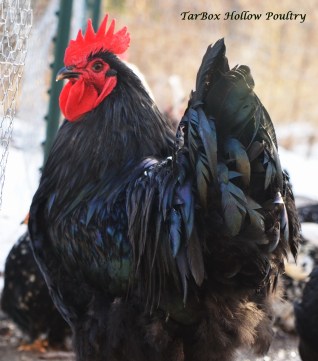Preventing Respiratory Illness with Poultry

Keeping chickens healthy in the winter, can be more challenging, than the greener times of summer, when they can munch on weeds and bugs, that naturally keeps them healthier. Closing chickens indoors for protection from the adverse weather can set up the right conditions for creating an ammonia filled environment, which can harm the sensitive airways of chickens. Ammonia is formed by an excessive buildup of feces and wetness in the coop. High levels of ammonia in the coop, can lead to respiratory illness. The illness can be a problematic condition.

causing egg production to drop off, and even death. Classic symptoms of the disease are coughing, wheezing, discharge from eyes and nose, sitting in a slumped position with ruffled feathers and often a lack of appetite. While many diseases cause this ill-fated condition, respiratory illness caused by ammonia may be one of the easiest to prevent.
Take these Steps to Keep your Flock Healthy
- Check bedding daily making sure it is dry, avoiding the formation of ammonia.
- Block any drafts, preventing cold air blowing directly on your birds while they roost.
- Good ventilation is a must, consider installing wall vents and or box fans.
- Feed good quality feed with ample clean drinking water daily.
- Look at ways to keep feces out of feed and water pans, try covering pans partially covering, hanging or raising up feeders and waters.
- Do not overcrowd them.
- Use bedding that is low in dust.
- Add 1 tablespoon apple cider vinegar per gallon of water using a non-metallic pan, it is an antiseptic that potentially destroys bad bacteria, encourages water consumption, and it supports good digestive health.
- Boost their immune system by supplementing their feed regime with probiotics, vitamins, and electrolytes.
- Use agricultural lime in the coop, spread a thin layer under the bedding when you clean, it an inexpensive way to help keep your coop dryer and cleaner. Agricultural lime has a high pH component that naturally destroys the bacteria that creates ammonia and is safe for chickens and other animals. It is used commonly in barns also known as barn lime and it is also beneficial for landscape and garden. Be sure not to confuse it with hydrated lime, which is not recommended for chickens.
- Consider the administration of essential oils, many large broiler farms are feeding oregano in place of antibiotics. See “In Hopes of Healthier Chickens, Farms Turn to Oregano,” New York Times. Oregano has natural antibiotic and antiparasitic properties currently are being studied as an antidote for coccidiosis and infectious bronchitis. Orego stim is an excellent source of oregano designed for chicks and chickens, developed in the United Kingdom, it is very economical and easy to administer in adding drinking water.
- Take steps to ensure they have a healthy living environment, by ensuring their living area is kept dry and clean coop regularly avoiding pile-up of ammonia causing manure.
- If you smell ammonia, so can they, it’s time to clean 😊

Treatment
While managing your flock to keep them healthy, sometimes they still acquire a respiratory illness. Consider keeping an antibiotic on hand in your first aid kit, see your veterinary for a recommendation. Rosemary essential oil can assist in treatment, mix 15 drops to 1 tablespoon of cooking oil and mix well. Apply rosemary mixture to head, neck, and underwings to help clear airways.
 Blue Birchen Maran cockerel 7 months old
Blue Birchen Maran cockerel 7 months old
Good Care Strategy
Chickens are tough, with resilience to all sorts of adverse conditions, and as you may know, it is much easier to take care of a healthy bird, than treat one for an illness. The best strategy is to develop a daily care plan that includes a clean environment and quality feed with additional nutrients to support excellent health from inside out. Manage your flock with these good animal husbandry practices keeping ammonia caused respiratory issues to a minimum.

K
You must be logged in to post a comment.